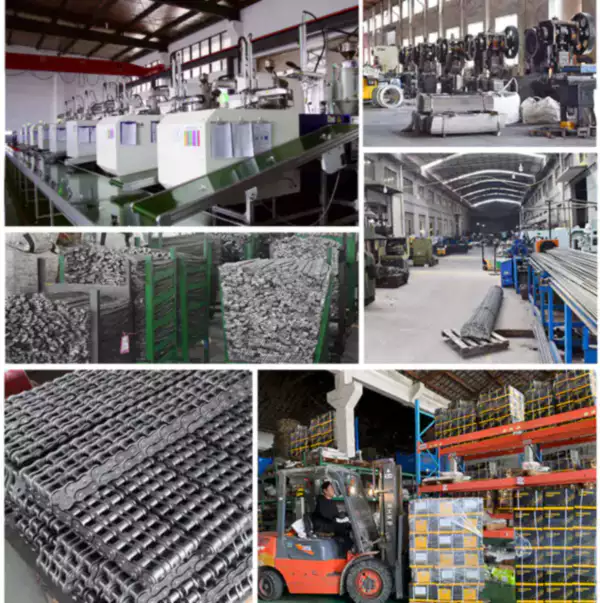Introduction
Gripper chains are widely used in various industries for material handling, packaging, and sorting applications. However, the harsh environments in which these chains operate can cause corrosion and wear, reducing their operational life and increasing maintenance costs. Therefore, to ensure the longevity and reliability of gripper chains, it is important to take steps to prevent corrosion.

Understanding Corrosion
Corrosion is a natural process that occurs when metal is exposed to the environment. The reaction between metal and its surroundings results in the formation of oxide or other compounds that weaken and deteriorate the metal. In the case of gripper chains, exposure to moisture, chemicals, and abrasive materials can cause corrosion, leading to chain failure and ultimately, machine downtime.
Types of Corrosion
There are several types of corrosion that can affect gripper chains:
- Uniform corrosion
- Pitting corrosion
- Crevice corrosion
- Galvanic corrosion
- Stress corrosion cracking

Corrosion Prevention Methods
There are several methods for preventing corrosion in gripper chains:
Material Selection
The choice of material for gripper chains is critical in preventing corrosion. Stainless steel is the most popular material option due to its high resistance to corrosion and wear. Other materials like nickel-plated steel and zinc-coated steel can also provide corrosion protection.
Coatings
Coatings can be applied to the surface of gripper chains to protect against corrosion. Some of the popular coatings include electroplated coatings, powder coatings, and organic coatings.
Lubrication
Lubrication can help to reduce friction and wear on gripper chains, thereby reducing the risk of corrosion. Lubricants can also provide a protective layer against moisture and other corrosive elements.
Maintenance
Regular maintenance, including cleaning and inspection, can help to identify and prevent corrosion before it becomes a problem. Routine maintenance can also help to extend the life of gripper chains and reduce downtime.

Gripper Chains Purchasing Guide
| Parameter | Description |
|---|---|
| Chain Type | Choose the appropriate chain type based on your application requirements |
| Material | Choose the material based on the operating environment |
| Size | Choose the appropriate size based on the load requirements |
| Length | Choose the length based on the conveyor or machine dimensions |
| Accessories | Choose the necessary accessories, including attachments and sprockets |
Sprockets for Gripper Chains
Gripper chains and sprockets are complementary products that work together to ensure smooth and efficient operation of material handling systems. Sprockets are toothed wheels that engage with the chain links to transmit power and motion. The choice of sprockets is critical in ensuring the longevity and reliability of gripper chains.

At Everpower, we offer a wide range of sprockets that are compatible with gripper chains. Our sprockets are made from high-quality materials and are designed to provide efficient and reliable performance. We offer both standard and custom sprockets to meet the specific needs of our customers.
Our Advantages
- We are a leading manufacturer of gripper chains, providing high-quality products at competitive prices.
- We have a team of experienced engineers and technicians who can provide technical support and custom solutions to meet our customers' needs.
- We use state-of-the-art manufacturing processes to ensure the highest level of quality and precision.
- We offer fast and reliable shipping to ensure that our customers receive their products on time.
- We are committed to providing excellent customer service and support to our customers.

Q&A
Q: How often should gripper chains be replaced?
A: The lifespan of gripper chains depends on several factors, including the operating environment, load capacity, and maintenance. Regular inspection and maintenance can help to identify signs of wear and corrosion and prevent chain failure. It is recommended to replace gripper chains when they show signs of significant wear or damage.
Q: Can gripper chains be used in high-temperature environments?
A: Gripper chains can be made from materials that can withstand high temperatures, such as heat-resistant stainless steel. However, it is important to ensure that the operating temperature does not exceed the maximum temperature limit of the chain material to prevent chain failure.
Q: Can gripper chains be used in food processing applications?
A: Gripper chains made from food-grade materials, such as stainless steel, can be used in food processing applications. However, it is important to ensure that the chains are properly cleaned and sanitized to prevent contamination.
Edited by Zqq.
